Cefdinir 300 mg Capsule
Cefdinir 300mg caps help treat some infections that arise due to bacteria like Bronchitis. It is an infection that occurs in airway tubes connected to the lungs. Also, the capsule treats pneumonia, skin infections, and infections of the throat, ears, and tonsils. This medication kills the bacteria. This capsule does not treat flu, cold, and other viral infections.
Cefdinir 300 mg Uses
- Cefdinir 300 mg is an antibiotic medication that is used to treat a variety of bacterial infections, including respiratory tract infections (such as bronchitis and pneumonia), skin and skin structure infections, and certain types of urinary tract infections.
- Cefdinir works by preventing the growth and spread of bacteria, effectively treating the underlying infection, and reducing symptoms like pain, inflammation, and fever.
- It is a type of cephalosporin antibiotic, which belongs to a class of drugs that are commonly used to treat bacterial infections.
- Cefdinir 300 mg is taken orally, usually in the form of a capsule, and is typically taken once or twice a day, depending on the severity and type of infection being treated.
- This medication should be taken exactly as prescribed by a healthcare provider, and it is important to complete the full course of treatment to ensure that all of the bacteria causing the infection are eliminated.
- Like all antibiotics, cefdinir may cause side effects, such as nausea, vomiting, diarrhea, and stomach pain. However, these side effects are usually mild and go away on their own within a few days.
- If you have a known allergy to cephalosporins or any other type of antibiotics, or if you have a history of liver or kidney problems, it is important to let your healthcare provider know before taking cefdinir.
Cefdinir 300 mg capsule dosage
The typical dosage for Cefdinir 300 mg capsules is usually once or twice daily, as prescribed by a healthcare professional, and should be taken with or without food.
Missed Dose
If you miss a dose of Cefdinir 300 mg, take it as soon as you remember. If it’s close to the next scheduled dose, skip the missed one. Do not double the dose.
Overdose
An overdose of Cefdinir 300 mg may lead to symptoms like severe nausea, vomiting, stomach pain, and diarrhea. Seek immediate medical attention if you suspect an overdose.
How to use Cefdinir 300 mg caps?
This medication comes in the form of liquid as well as suspension. Take this capsule orally. Take it with/without meals. Consume it every 12-24 hours for nearly 5 to 10 days based on the condition.
Follow the prescription and directions stated on its label. Check with your pharmacist or physician if you do not know how to use it.
Consume this tablet as per the doctor’s suggestion. Do not take more or less as prescribed by the doctor. Before using it, shake the suspension properly. Shake it well before every use so that it mixes well.
You will start feeling better after taking this capsule in a few days. In case, you do not see any improvements or your symptoms get severe, speak to your physician immediately.
Even if you start feeling better after a couple of days of taking this medication, do not stop using it. If you do so, the infection will not heal completely. Also, the bacteria may get used to antibiotics.
How Cefdinir Works?
Cefdinir works by inhibiting the formation of the bacterial cell wall, which is essential for the survival of bacteria. By preventing the formation of the cell wall, cefdinir destroys the bacteria and eliminates the infection. The drug is rapidly absorbed into the bloodstream and distributed to the site of infection, where it begins to take effect.
Cefdinir is a broad-spectrum antibiotic, which means that it is effective against a wide range of bacteria. It is commonly used to treat infections caused by Streptococcus pneumoniae, Haemophilus influenzae, Moraxella catarrhalis, and other bacteria.
What precautions do I need to take while using Cefdinir 300 mg capsule?
Before using Cefdinir 300 mg medication
- Inform your healthcare provider or pharmacist if you have an allergic reaction to this medicine. Also, inform them if you are allergic to other antibiotics.
- Please tell your medical expert if you have allergic reactions to any ingredients present in this suspension or capsule.
- Let your pharmacist or doctor know about other medications, nutritional supplements, or herbal products you are using. You may need changes in dose. So, give complete information to your doctor to avoid possible side effects.
- Tell your healthcare professional about antacids, multivitamins, or iron supplements you are using. You can take them 2 hours before taking this medicine or 2 hours after taking this capsule.
- Inform your physician if you have a history of gastrointestinal disease or suffering from such problems. Also, tell your physician if you have kidney disease.
- If you are planning pregnancy, are pregnant, or breastfeeding mother, inform your physician.
- If you are a diabetic patient, inform your diabetologist before using this capsule or suspension.
Side effects of cefdinir 300 mg capsule
The use of Cefdinir capsule/suspension can lead to some side effects. If these symptoms are severe or stay for longer, tell your healthcare provider immediately. The side effects noticed due to the consumption of this capsule are as follows
- Nausea
- Vomiting
- Stomach pain
- Reddish-colored stools
- Headache
- Vaginal itching
- Diarrhea
Some side effects of Cefdinir 300mg capsule can be severe. If you notice any of the symptoms below, visit the physician immediately or seek immediate medical help.
- Hives
- Rash
- Difficulty in swallowing or breathing.
- Swelling of the throat, face, lips tongue, or eyes.
- Blood or water stools.
- Stomach cramps
- Fever during treatment for 2 or more months after discontinuing the treatment.
- A return of chills, fever, sore throats, or indications of infections.
Storage and disposal directions for Cefdinir 300mg capsule
Store Cefdinir capsule in its original container. Close the container tightly after use. Do not let children touch this medication. Store this capsule at room temperature. Make sure you keep it away from extreme moisture and heat.
Dispose of any pack of this medication not used for 10 or more days immediately.
Make sure you dispose of the unused medicine carefully and securely so that the children and pets do not touch it.
- Do not flush this capsule/suspension in the toilet
- A medicine-take-back program is the best way to dispose of this medicine.
- Discuss with your pharmacist or recycling or garbage department to know about take-back programs.
- Store The medication is stored inside lockers so that children cannot touch it.
Overdose of Cefdinir Capsules
If you overdose on this medication, you should seek emergency medical assistance. In the case the patient gets a seizure, collapses, or experiences breathlessness, you need to get in touch with emergency medical services immediately.
What are the symptoms of an overdose of Cefdinir 300mg capsule?
- Seizures
- Vomiting
- Diarrhea
- Stomach pain
- Nausea
Things I need to know while using Cefdinir Capsules
- Make sure to schedule all your appointments with the laboratory and doctor. The doctor may advise some lab tests. These tests will help the doctor check how the medicine is working for you.
- Before you appear for a lab test, ask your laboratory staff and doctor that you are on this medication.
- If you are a diabetic patient, let the diabetologist know about it. Cefdinir 300 mg can intervene with your diabetes.
- Do not share the Cefdinir capsule with others.
Make sure you list all non-prescription and prescription medicines you are taking. Also, list the minerals, vitamins, or dietary supplements you are taking.
Carry this list each time you see a doctor. You may also need this list if you get hospitalized. This information is also necessary in case of emergencies.
Cefdinir 300mg capsule can disturb the function of live bacterial vaccines. Hence, let your doctor know that you are using this capsule before vaccinations or immunizations.
If you are undergoing surgery, tell your dentist or doctor about the medications you are using. It may include herbal products, prescription drugs, etc. Discuss the risks &benefits with a healthcare provider. It will help you prevent the possible side effects of this medication.
FAQs
What if I tend to miss a dose of Cefdinir 300mg caps?
If you miss a dose of this capsule or suspension, take it once you recollect. If your next dose of this capsule is near, take that regular dose and skip the missed dose. Do not double the dose of this capsule.
Can I use Cefdinir 300 mg tooth infection
Cefdinir 300 mg can be used to treat tooth infections caused by certain bacteria. However, it’s essential to consult a dentist or healthcare professional for a proper diagnosis and prescription. Antibiotics like Cefdinir should only be used as directed by a medical expert to ensure effective treatment and minimize potential side effects.
Can I use cefdinir 300 mg capsule for sinus infection
Cefdinir is an antibiotic that is commonly used to treat infections caused by bacteria, such as sinusitis. However, the specific dose and treatment duration for sinus infections can vary based on the severity of the infection and individual patient factors.
What are cefdinir 300 mg allergic reactions
Allergic reactions to Cefdinir 300 mg may include rash, itching, swelling, severe dizziness, difficulty breathing, or a severe allergic reaction (anaphylaxis). If you experience any of these symptoms, seek immediate medical attention.
Can i use cefdinir 300 mg and alcohol togather
It’s generally recommended to avoid alcohol while taking Cefdinir 300 mg, as alcohol may interact with the medication and increase the risk of side effects and reduced effectiveness. Consult your healthcare provider for specific guidance regarding alcohol consumption during your treatment.
Can I use cefdinir 300 mg for bladder infection
Cefdinir 300 mg is not typically used to treat bladder infections. It’s important to consult a healthcare professional for the appropriate antibiotic treatment for bladder infections, as Cefdinir may not be the most effective option.
Can I use cefdinir 300 mg in UTI
Yes, cefdinir 300 mg can be used for the treatment of urinary tract infections (UTIs). UTIs are infections that occur in the urinary tract, which includes the bladder, urethra, and kidneys. Cefdinir is an oral antibiotic that is effective against a wide range of bacteria, including those that cause UTIs.
However, the specific dose and duration of treatment will depend on the severity of the infection and individual patient factors, so it is best to consult with a healthcare provider for an accurate diagnosis and appropriate treatment.
Can I use cefdinir 300 mg for bronchitis
Yes, Cefdinir 300 mg can be prescribed to treat bronchitis if it’s caused by a bacterial infection. Always follow your healthcare provider’s instructions for proper usage.
Conclusion
Cefdinir 300 mg is a medication used to treat bacterial infections, but its usage should always be based on a healthcare provider’s recommendation for the specific condition being treated. It’s essential to follow prescribed dosages and guidelines for safe and effective treatment. If you have any concerns or questions about its usage, consult your healthcare provider for personalized advice.

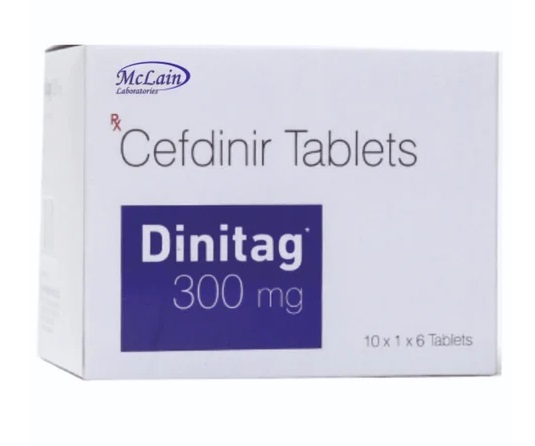



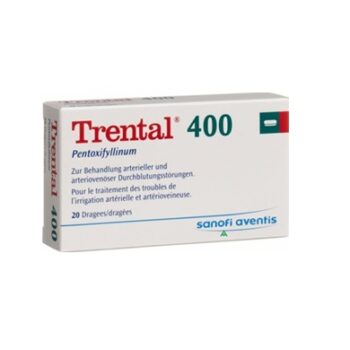
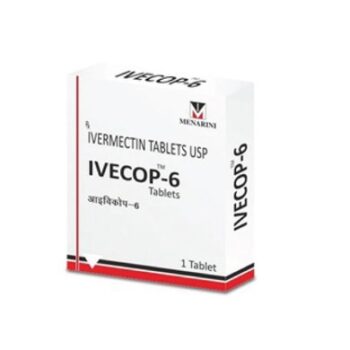
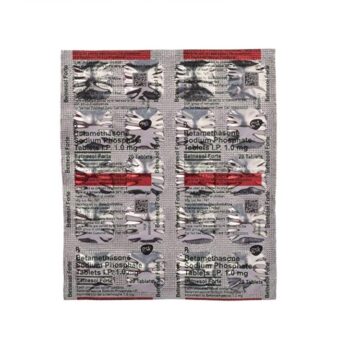

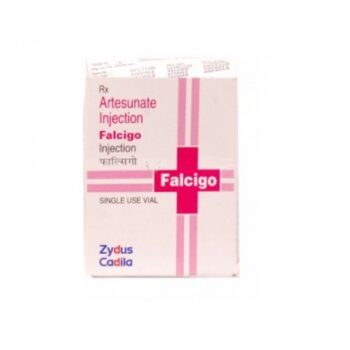


Reviews
There are no reviews yet.